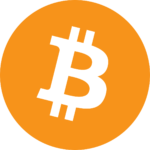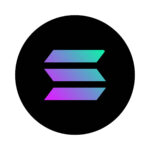Ethereum is a decentralized, open-source blockchain system that features smart contract functionality. It’s the second-largest cryptocurrency platform by market capitalization, after Bitcoin.
What Makes Ethereum Unique?
Ethereum is more than just a cryptocurrency. It’s a platform for building decentralized applications (dApps) using blockchain technology. Its native cryptocurrency, Ether (ETH), is used to power these applications and carry out transactions within the network.
Setting Up an Ethereum Wallet
To use Ethereum, you will need a digital wallet that can handle Ether and support smart contracts.
Types of Ethereum Wallets
- Desktop Wallets: Applications like Exodus or Mist, designed for desktop computers.
- Mobile Wallets: Apps for your smartphone such as MetaMask or Trust Wallet.
- Web Wallets: Online services like MyEtherWallet or MetaMask’s web version.
- Hardware Wallets: Physical devices that store Ether offline, such as Ledger Nano S or Trezor.
Securing Your Wallet
- Protect your private keys and never share them with anyone.
- Use strong, unique passwords for your wallet.
- Enable two-factor authentication if your wallet supports it.
Acquiring Ether (ETH)
Buying Ether
- Cryptocurrency Exchanges: Purchase ETH with fiat currency on exchanges like Coinbase, Binance, or Kraken.
- P2P Platforms: Use websites like LocalEthereum to buy ETH directly from other individuals.
Earning Ether
- Freelancing: Earn ETH by offering services or goods in exchange for Ethereum.
- Mining: Participate in the Ethereum network by mining. However, Ethereum plans to shift from proof-of-work to proof-of-stake, which will change the mining landscape.
Using Ethereum
Sending and Receiving Ether
- To Send ETH: Use your wallet to enter the recipient’s public address, specify the amount, and send.
- To Receive ETH: Share your public address with the sender to receive ETH in your wallet.
Interacting with Smart Contracts and dApps
- Ethereum allows you to interact with smart contracts and use dApps built on its network.
- You may need some ETH in your wallet to use these applications, as they require gas (a small amount of Ether) to execute smart contract functions.
Understanding Gas
- “Gas” refers to the fee required to successfully conduct a transaction or execute a contract on the Ethereum blockchain.
- The gas fee is paid in Ether, and the price can fluctuate based on network demand.
Ethereum Best Practices
Stay Updated
- Ethereum is undergoing significant upgrades, such as Ethereum 2.0, which aims to improve scalability and security. Stay informed about these changes.
Practice Safe Transactions
- Double-check addresses before sending transactions, as they are irreversible.
- Only connect your wallet to trusted dApps to avoid scams and phishing attacks.
Long-Term Storage
- For significant amounts of ETH, consider cold storage options like hardware wallets for added security.
Conclusion
Ethereum is at the forefront of blockchain development, offering a rich ecosystem for developers and users alike. Whether you’re interested in participating in the network as a user, developer, or miner, understanding the basics of Ethereum is the first step towards leveraging its potential. Remember to approach all cryptocurrency practices with caution to ensure the security of your assets.










